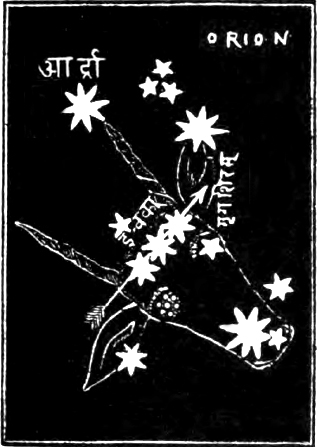Yeah, sure. The story is in RigVeda and in Taittiriya Aranyaka, Brahmana, etc. Before 2,250 BCE, the sun rose on the day of vernal equinox at the place where IE lived in the asterism of Orion (Mrigashiras, the antelope). That was the beginning of IE New Year. But around 2,250 BC, the IE saw that the sun was rising before it came to Orion. It was titling towards Aldebaran (Rohini). That meant that the seasons will change, the year will have to be started earlier, the calendar of Yajnas also will have to be changed. They thought Orion, Prajapati, had an incestous inclination. Rohini was considered the daughter of Prajapati. That was greatly disliked by men and Gods. It infuriated Rudra so much that he pierced the head of Prajapati with an arrow. The IE then chose Pleiades to be the first asterism of the year. Of course, all this was caused by precession of equinox. They would change the asterism again in 600 AD and further adjust their civil and ritual calendar.




"It is usually derived from the Proto-Indo-European (PIE) root
rud- (related to English
rude), which means 'to cry, howl'." "An alternative etymology suggested by Prof. Pischel interprets
Rudra as the 'red one', the 'brilliant one', possibly derived from a lost root
rud-, 'red' or 'ruddy', or alternatively, according to Grassman, 'shining'." "Mallory and Adams also mention a comparison with the Old Russian deity Rŭglŭ to reconstruct a Proto-Indo-European wild-god named
*Rudlos, though they remind that the issue of the etymology remains problematic: from PIE
*reud- ('rend, tear apart'; cf. Latin
rullus, 'rustic'), or
*reu- ('howl')."
Rudra - Wikipedia
Rudra is mentioned in RigVeda as being Babhru, Brown colored/haired. Ruda is the father of Maruts, roughly wind Gods. Aup. adds: Rodeo.
is so totally eerie that I suppose for most, a leading trio of three male gods is much more reassuring, especially if they can call them an analogy to the Christian trinity for the sake of convenience.



